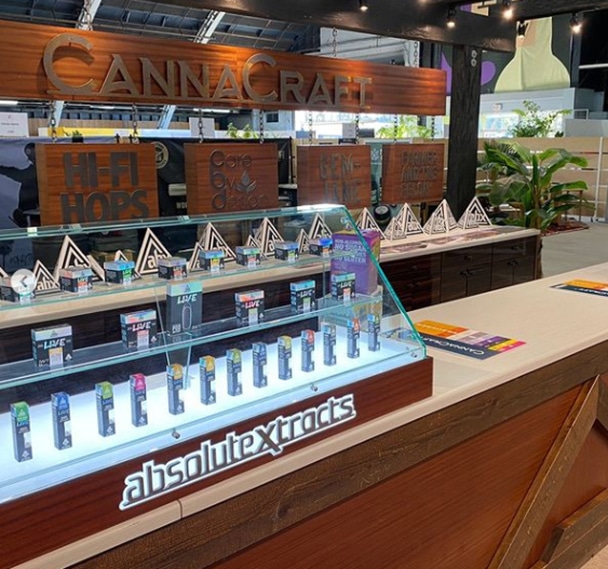Are slotting fees the future of the cannabis industry?

For years, grocery stores and retail outlets have maintained “slotting fees” as a means for brands to secure top-shelf spaces in their stores’ displays. Recently, the cannabis industry began following suit. This common retail strategy follows a “pay-to-play” model, where retailers charge upfront fees to get products on the most desirable displays. Although it’s a mainstream retail market model, many in the cannabis industry are concerned that a move toward slotting fees will hinder smaller brands that are unable to pay the fees. Nevertheless, this proven retail method of slotting fees poses both pros and cons to brands themselves — but will the cannabis industry follow the same footprint as mainstream retail?
What are slotting fees?
Also called “shelving fees” or “slotting allowances,” the system is a condition for initial placement on a store’s shelves. Simply, retailers charge a one-time fee ensuring product placement in a desirable display. This “slotting fee” serves two major functions: it protects a retailer’s investment when buying a new product that hasn’t yet shown its value to the consumer, and it allows brands to ensure their product is placed in a way that encourages consumers to purchase. In grocery stores, for example, this could mean product placements on middle shelves, closest to the consumer’s plain of sight, or on end caps. Costs vary greatly depending on the industry, but in the grocery industry, brands pay upwards of $150K for shelf space at major chains.
Cannabis slotting fees pros and cons
Much like other consumer goods, the cannabis industry is beginning to model slotting fees after mainstream industries. Cannabis slotting fees pros and cons follow the same trends. Proponents say they protect the retailer from losses and amplify the brands that can pay the fees. If there is a sound strategy behind product placements, slotting fees can be used as a means to secure the best possible displays for a brand’s products – right in front of the consumer.
Opponents of slotting fees claim they are just another way to squeeze funds out of companies, which will inevitably isolate small brands and mom-and-pops that can’t afford to dish out the large sums for placement. In Michigan, where slotting fees have already been established at dispensaries, contracts typically begin around $3,000 for a three- to six-month placement but can run as high as $25K or more, according to an article by MJBiz Daily.
In Michigan, larger chains are driving the trend toward cannabis slotting fees. Retailers with six or more locations are pushing the agenda, hoping to lock in fee structures for all of their locations. For example, Cloud Cannabis Co. has slotting fee arrangements at 25 of their retail locations, with different deals at every location. These deals look like flat monthly fees for placements or build-outs in exchange for floor space. Sometimes, in-kind product and service tradeoffs are even part of the deal.
Strategies for Cannabis Brands
Regardless of popularity, it seems pretty likely the mainstream slotting fee model will spread throughout the cannabis industry. If possible, growers and producers can look for more traditional dispensary partners. But unless regulations are created to limit or prohibit the practice, brands will have to compete with one another financially for placement. Brands that can allocate funds for placements may be wise to do so, especially if they can negotiate the slotting fees.
Brands that can’t compete financially for the best placement will need to find other ways to get on the shelf. By creating a sales presentation that highlights sales and marketing data, including sales data from other dispensaries if possible, cannabis brands may be able to stave off the steep fees. Retailers use slotting to prevent loss — if a brand can attract consumers with branding, messaging, marketing and/or packaging and prove to retailers its products will indeed sell, there’s room to lessen the financial burden. Afterall, when brands succeed, so do the retailers.
CannaCon is the nation’s leading business-to-business cannabis conference with a goal to grow the cannabis industry by educating cannabis business owners on all things related to cannabis. CannaCon’s trade shows feature a large exhibition hall with exhibitors from around the country as well as seminars delivered by industry experts. Register today for a CannaCon cannabis trade show near you.
Photo courtesy of Bud Bar Displays.
